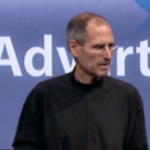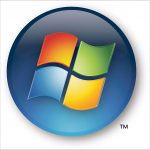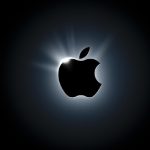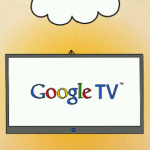Could iPad lift Apple revenues above Microsoft?

In late April, I posted a long analysis about how Apple revenue and profits had closed in on Microsoft -- to within $1 billion. Judging from pageviews, comments and e-mail responses, few people seemed to get it. I saw the trend as being much more important than Apple market capitalization nearing Microsoft's. A month and two days later, Apple's valuation topped Microsoft's, which made headlines everywhere. But still few people seem to get the significance of the revenue and income comparisons. Until yesterday. Finally somebody gets it, yet missed to connect the final dot: iPad revenue could push Apple above Microsoft during this quarter.
Business Insider's June 2 Chart of the Day, "Apple Races to Catch Microsoft's Profits," graphically depicts what I explained six weeks ago. Jay Yarow and Kamelia Angelova write: "Apple's operating income is still trailing Microsoft. But, boy is it growing fast. In the most recent quarter, Apple reported operating income of $3.9 billion, while Microsoft reported $5.2 billion." The Business Insider chart shows "operating income after depreciation," which is a nice touch. The approach also accentuates Apple's dramatic operating income rise from 2000 to 2010.
There's something sleazy about AT&T capping data plans right after raising early termination fees

For iPhone users already loathing AT&T, the carrier has given them a new reason: New data-capped plans introduced in somewhat sneaky fashion. Starting June 7th, AT&T will do away with unlimited smartphone data plans. The announcement comes one day after the carrier nearly doubled early termination fees for smartphones. Now we know the reason why AT&T instituted the new termination fees, or at least the timing.
Before June 7th, new or existing customers can still snag an unlimited plan and keep it even after AT&T introduces 200MB and 2GB data caps. But if subscribers make account changes, including new activations, they get bumped into one of the new capped plans. AT&T also will offer iPhone tethering, which a customer service rep told me today will be supported by iPhone OS 4. But to get tethering, customers must sign up for or switch to the 2GB data-capped plan. AT&T won't let subscribers keep their unlimited plans and have tethering, too. AT&T also will impose data caps on iPad. A 2GB capped plan will replace the current unlimited option.
10 questions Walt Mossberg should ask Steve Jobs tonight

All Things Digital kicks off its eighth D Conference this evening, with Apple CEO Steve Jobs taking the hot seat. Jobs' participation couldn't come at a seemingly better time. The Apple cofounder has taken asserted charge, after recovering from a liver transplant last year. Apple stock is high flying. World Wide Developers Conference convenes next week, presumably with an iPhone 4G announcement. Apple shipped 2 million iPads since last month's sales launch.
But Apple also has been criticized for restrictive iPhone 4 OS developer terms and openness of its Web strategy. Then there is the rumored Justice Department investigation into iTunes business practices. So there is plenty for D8 organizers Walt Mossberg and Kara Swisher to ask Jobs about. I've got 10 questions and not necessarily the most obvious one. Jobs is highly unlikely to answer obvious questions, like about iPhone OS, Apple TV or other rumored announcements.
Apple is the new AOL and new Microsoft, and whoa that can't be a good thing

Two astoundingly good analyses hit the InterWebs over the US holiday weekend: John Battelle's "Is The iPad A Disappointment? Depends When You Sold Your AOL Stock" and Kroc Camen's "Will Apple Embrace the Web? No." If you're a geek, developer or investor and read nothing else today, it should be these two posts -- and this one, of course. :)
Battelle and Camen come at the topic from different directions, but end up at the same destination: The Web will be easier to use on iPhone OS devices, but Apple will confine consumers and developers to its, ah, walled apple grove. I expressed similar sentiments in posts "Steve Jobs' 'Thoughts on Flash' is just smoke" and "Clash of the titans: Apple, Google battle for the mobile Web." But Battelle and Camen offer better, while different, explanations.
Apple sells 2 million iPads, but should anyone get excited?

Apple is celebrating Memorial Day with a little memorial to iPad: Announcement of 2 million units sold in about 60 days. Typically, in Apple parlance, sold means shipped. However, given short supplies, the stated number is probably closer to sold, depending on how much Apple stocked the international channel for the weekend launch.
Assuming an average selling price of just $500 -- and I expect it's more likely $600 or $650 -- iPad has generated at least an additional $1 billion in revenue for the company. For the full quarter just passed, Apple shipped 1.15 million desktop Macs, so already iPad has nearly doubled sales there. Desktop Mac sales generated $1.5 billion in revenue. Within weeks, if not already, iPad revenues this quarter will exceed desktop Mac for calendar Q1. Impressive.
Steve 'Ballmer's Reality Distortion Field is overheating'

Monday Note has a nasty indictment of Microsoft CEO Steve Ballmer's ability to deal with reality. In post, "Ballmer just opened the second envelope," Jean-Louis Gassée writes about a different kind of Reality Distortion Field. The concept is normally applied to Apple CEO Steve Jobs and his ability to get just about anyone to believe anything. Gassée applies the Reality Distortion Field to Ballmer as a form of denial. He doesn't accept the reality of Microsoft or its failure to truly innovate under his decade-long leadership.
"Microsoft shareholders ought to worry about Steve Ballmer's own distortion, and about the self-inflicted effects of such a strong field," Gassée writes today. "We all remember Vista, it was a godsend for Apple. Did Ballmer acknowledge that there were problems? What about the Xbox 360 reliability nightmare? The apologies were left to underlings.
Steve Ballmer IS the right man to turn around Microsoft mobile

The headline is my answer to the question "Is Steve Ballmer Really the Best Choice to Run Microsoft's Consumer Business?" asked by Kevin Tofel at GigaOM on May 25th. There are several good reasons why Ballmer is the right man at the right time, but one stands out. He turned around another important Microsoft product: Windows.
"For the last 12 months, I've been running our Windows business," Ballmer told financial analysts in July 2009. It was a startling proclamation. The division, now called Windows and Windows Live, had no president running operations. There was Steven Sinfosky in charge of day-to-day Windows development, but no executive above him. Ballmer took the role that Sinfosky inherited in July 2009 as president. After bungling Vista, Microsoft got Windows 7 right, under Ballmer's supervision.
Apple market capitalization tops Microsoft

For weeks, pundits predicted what happened today: Apple's value exceeded Microsoft's. While writing post "The Windows era is over" early this afternoon, Apple's market capitalization was $227.95 billion and Microsoft's $228.47 billion, or just $520 million separating them. By the time I posted, at 2:56 pm, Apple's market cap was $225.98 billion and Microsoft's was $225.32 billion.
In the 20 minutes after, the two companies went on a roller coaster ride of sorts, with Microsoft failing to near $221 billion and Apple rising above $228 billion.
The Windows era is over

About five years ago, when blogging as an analyst, I asserted that computing and informational relevance had started shifting from the Windows desktop to cloud services delivered anytime, anywhere and on anything. The day of Windows' reckoning is come: 2010 will mark dramatic shifts away from Microsoft's monopoly to something else. Change is inevitable, and like IBM in the 1980s, Microsoft can't hold back its destiny during this decade. The Windows era is over.
What's surprising: New competition encroaching on Microsoft's Windows territory. Mobile device-to-cloud competition's shifting relevance bears striking similarities to the move from mainframes to PCs, and it is a long, ongoing trend. Microsoft's newer problem is sudden and unexpected: Competing operating systems moving up from smartphones to PCs or PC-like devices. Apple's iPhone OS on iPad is one example. More startling: HP's acquisition of Palm and plans to release WebOS tablets this year; and Android's push upwards to Sony TVs.
10 reasons I dumped iPhone 3GS for Nexus One

On April 24, I put aside my Google Nexus One and purchased a white 32GB iPhone 3GS from AT&T. Two days ago, I returned the Apple smartphone and cancelled the service. My reasons should interest anyone considering AT&T and iPhone between now and June 1st, especially, and after June 7th. The first date is when AT&T jacks up early termination fees; the second, when Apple is expected to announce the iPhone 4G.
Let me start by saying that I won't pull a Dan Lyons. The Newsweek columnist and Steve Jobs wannabe also is switching from iPhone to Nexus One. But he unleashed one helluva venomous diatribe explaining why. I've got no venom to spew. I really enjoyed the iPhone 3GS and will miss using the device. My reasons are more pragmatic.
J Allard and Robbie Bach are out, in doomed Microsoft Entertainment & Devices shake-up

Today, Microsoft doomed its Entertainment and Devices division to failure, in a sudden shake-up removing key creative leaders. Timing is simply terrible. Microsoft is engaged in a pitched battle with Apple and Google in several strategic entertainment and mobile categories. It's like Microsoft changed generals on the eve of a major and quite possibly war-outcome-defining engagement.
Out are Robbie Bach, president of the Entertainment and Devices division, and J Allard, Microsoft's Apple Jony Ive wannabe. In expanded roles: Andrew Lees, senior veep of the Mobile Communications Business, and Don Mattrick, senior veep of E&D's Interactive Entertainment Business. Bach will stay on through autumn in an advisory role, but the move leaves one of Microsoft's five major business units without a president. Allard is leaving. Period. Although Microsoft claims he will remain in an advisory role to CEO Steve Ballmer.
Apple's five stages of Google grieving

Grief typically follows any breakup, whether by the living separating or death taking one away. Apple's response to the disillusion of its Google relationship is near textbook case of the five stages of grief: denial, anger, bargaining, depression and acceptance. Apple is slowly coming to terms with life after Google, and like any grieving the process hasn't been easy.
Denial. Two years before Apple released iPhone, Google bought Android. From the August 2005 acquisition, it was clear that Google would make mobile a priority, and surely that a phone would follow. "We did not enter the search business. They entered the phone business," Apple CEO Steve Jobs told employees during a March meeting. Google released Android OS about 18 months after iPhone launched in June 2007, but the product was foreseeable. Jobs' retort is classic denial behavior.
Are you a Mac, or are you a PC?

The year 2006 will be remembered as transformative. Google bought the nearly year-old YouTube. Facebook opened to the general public, and Twitter launched. In May, Apple debuted the "Get a Mac" advertising campaign, which is one of the most memorable and quite possibly the most definitive for high-tech marketing -- at least in this century. "Get a Mac" is no more. Apple now redirects to Why You'll Love the Mac," which is merely informational. Four years of commercials are gone, too, although some will remain on YouTube until Apple demands they be pulled. That's already started.
As I've asserted before, most of the popular social media services taken for granted today started during or after 2006. Even the iPhone came later. Something else happened in 2006, which gave Apple unexpected tailwind for Mac sales: Microsoft bungled Windows Vista's launch. The company missed the holiday sales period, launching Vista for businesses at the end of November, but not for consumers until late January 2007. Apple's "Get a Mac" marketing would shift from generally knocking Windows PCs to direct attacks on Windows Vista.
Google TV is all about blood sucking television ad spending

Did you hear the news? The Internet is coming to your TV. It's going to be this big platform for which developers create applications. Pundits are saying the strategy is really impressive. Get this: Major television set manufacturers are going to support the platform, so you get the best of TV and the Internet. Oh you did hear about it. Google TV, right? Wrong! I just described variations of Microsoft's television strategy as announced over the years: Web TV, Windows Media Center, Mediaroom and Mediaroom for Xbox.
Did Google execs not hear about Microsoft's mostly failed living room strategy, which Google TV shockingly sounds like? Several former Microsofties are now Googlers. Surely somebody knew about Microsoft's past TV bungles. If Microsoft couldn't make Internet TV work, why should Google do any better? Google's strategy sounds so similar that I'm stunned by some pundit's early cooing over the strategy.
Is iPad cannibalizing Windows PC sales?

About a month ago I asked: "Will iPad cannibalize Mac sales?" Today's report that iPad is outselling the Mac is another reason to ask. The answer may not come until Apple releases second calendar quarter results, to see whether there's cannibalization or new revenue. Oh, but I can speculate, meantime.
RBC Capital Markets analyst Mike Abramsky released a report indicating that Apple is now selling about 200,000 iPads a week, compared to 246,000 iPhone 3GSes and 110,000 Macs. Data is for United States. That puts iPad's sales rate nearly double the Mac, and that's with constrained tablet supplies. How much greater could they be if Apple met demand.
Joe's Bio
Joe Wilcox is BetaNews executive editor. His motto: Change the rules. Joe is a former CNET News staff writer, JupiterResearch senior analyst, and Ziff Davis Enterprise Microsoft Watch editor.
Ethics StatementBetaNews, your source for breaking tech news, reviews, and in-depth reporting since 1998.
© 1998-2025 BetaNews, Inc. All Rights Reserved. About Us - Privacy Policy - Cookie Policy - Sitemap.
